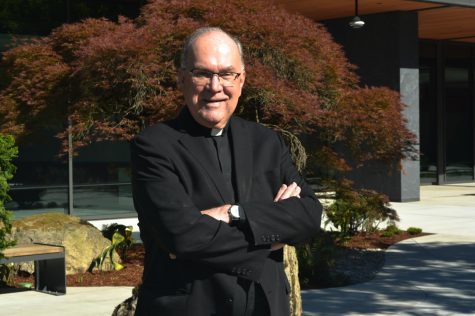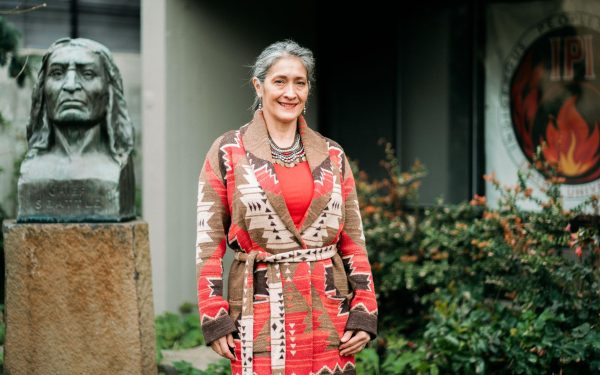Seattle U’s Education Abroad Program: Trending Towards Normalcy
After a two-year suspension of study abroad programs at Seattle University due to COVID-19, the program saw a massive uptick in participants last summer. Over 250 students traveled in the 2022 summer and fall quarters, a notable increase from the four students who traveled in the 2021-22 academic year. Although the Education Abroad Office (EAO) reports that number is usually closer to 450, the program is slowly returning to its pre-pandemic heights.
As with many contemporary issues, the status of COVID-19 restrictions affected the entire program. When most countries’ restrictions began to ease in 2022, professors were able to coordinate opportunities with more clarity, and students started to trickle back into various study abroad programs.
For Fourth-year Communications major Claire Needs, the opportunity to study abroad was a major component of her collegiate plan from the beginning. Timing, restrictions and an uncertain health climate put a dampener on those plans.
“Going into university, my goal was to study abroad. I had even picked out a program during my freshman year of college. I was in the middle of applying for it. Then, COVID happened,” Needs said.
By the end of Needs’ third year at Seattle U, the Education Abroad program started up again and international restrictions eased. Needs took advantage of her final opportunity to study abroad, studying fashion journalism at Central Saint Martins in London during the fall term. That decision changed the trajectory of her future.
“[Fashion journalism] was something I dreamt of and really wanted to do, but I didn’t feel like it was possible until I went and was able to have professors in the field and all these guest talks,” Needs said, reminiscing on events featuring executives in the field of fashion like Kim Jones, the creative director of Dior Homme.
The EAO gives students from all disciplines the opportunity to explore their chosen fields. Third-year Public Affairs major Ed Lawrence Hagape traveled to Meknes, Morocco through Seattle U’s Education Abroad Program. Currently on track to obtain a minor in Arabic, Hagape’s decision to study in an Arabic-speaking nation was no coincidence. When he got there, the immersion and personal experiences stole the show.
“I did some traveling by myself, and it was beneficial because I was in ‘survival mode,’” Hagape said, retelling stories about having to use conversational Arabic in practice. “It showed me there is some real-world application to this,” Hagape said.
Although many students like Needs and Hagape described their respective host countries as lax in regard to COVID-19 restrictions, students should still be wary of other restrictions when planning their study abroad trips. While COVID-19 numbers are no longer the primary reason for travel advisories, there are a number of other factors that may cause the U.S. Department of State to deem a country as high-risk. Countries with a level three or level four travel advisory designation are considered dangerous by the U.S. Department of State, and anyone looking to travel to these countries is advised to reconsider.
Countries like China and Egypt are on this list for reasons outside of COVID-19, such as wrongful detentions and terrorism respectively. Any student who is interested in studying abroad in these high-risk countries would be required to submit a petition to Seattle U’s Risk Assessment Committee. According to Kirsti Ruud, the interim director at the EAO, this is not an issue for most Seattle U programs.
“The majority of countries are back to pre-pandemic levels of advisory, so there are not as many countries that would fall under that category. Very few students would have to submit a petition now,” Ruud said.
As memories of their experiences set in, Hagape and Needs both expressed how seriously students should consider studying abroad with the program operational again.
“It’s very enriching, and going through the whole process, I found out how easy it is… If you’re not taking a language or don’t know a language, there’s some way where you can still study abroad and make it enriching,” Hagape said.
Needs echoed Hagape’s enthusiasm and argued that students should challenge themselves when considering studying globally.
“Don’t worry too much about the social aspect because you’ll get there. I know it can be scary to go to a new place all by yourself,” Needs said. “But it’s kind of liberating to be with yourself and meet new people and do things you never would have thought would be possible.”
The application deadline for Education Abroad in the fall is Feb. 1 as the program plans its return in 2023.










